AUßENPOLITISCHES
(Soros – oder die Mächtigen hinter der NS-Vergangenheitsbewältigung)
Klassenfahrt mit Soros
https://sezession.de/57277/klassenfahrt-mit-soros
Ernst Wolff erklärt den IWF in 5 Minuten.
https://www.youtube.com/watch?v=Zt7lONlgU-o
IWF verlangt steigende Verbraucherpreise in Deutschland
https://jungefreiheit.de/wirtschaft/2017/iwf-verlangt-ste...
(Verordneter Euro-Segen für Alle)
Brüssel
Der Euro für alle
Es soll der Siegeszug des Euro werden: Innerhalb der nächsten Jahre will die EU-Kommission die Gemeinschaftswährung in allen Mitgliedstaaten durchsetzen. Es ist der Auftakt zu einer großen Reform.
http://m.mainpost.de/ueberregional/wirtschaft/mainpostwir...
Bundeskanzlerin Merkel für gemeinsamen Euro-Finanzminister
https://jungefreiheit.de/wirtschaft/2017/bundeskanzlerin-...
(Dazu…)
Abschaffung der Nationalstaaten Europas
Die Katze ist aus dem Sack!
http://www.pi-news.net/die-katze-ist-aus-dem-sack/
Griechenland: bis zur Bundestagswahl Konkursverschleppung
https://think-beyondtheobvious.com/stelters-lektuere/grie...
AFD Fraktion Hamburg: Vortrag von Vaclav Klaus am 7.6.2017
"Die unverantwortlichen Träume der EU-Eliten", ein Vortrag von EU-insider Vaclav Klaus am 7.Juni 2017 im vollbesetzten Festsaal des Rathaus Hamburg.
https://www.youtube.com/watch?v=agWOGmcsN-Y
„Hunger-Bonds“
Goldman Sachs rettet Venezuelas Diktator vor der Pleite
https://www.welt.de/finanzen/article165136242/Goldman-Sac...
Anschlag in London Sieben Tote, zwei Tatorte - Polizei erschießt drei Angreifer
https://www.welt.de/politik/ausland/article165227140/Sieb...
Tote bei Anschlag in London
https://jungefreiheit.de/politik/ausland/2017/tote-bei-an...
Anschlag in London
Von Storch beschimpft Maas und Merkel nach Beileids-Tweets
https://www.welt.de/politik/deutschland/article165228419/...
Aufregung im Netz
London: CNN arrangierte muslimische Friedensdemo
http://www.krone.at/medien/london-cnn-arrangierte-muslimi...
https://www.youtube.com/watch?v=2ObbTX_nMGk&feature=y...
(Selbstrechtfertigung der tagesschau)
Fake-News-Vorwurf im Netz
Wirbel um CNN-Dreh in London
http://faktenfinder.tagesschau.de/ausland/london-389.html
Schweigeminute für Londoner Terroropfer
Unsensible Saudis
von Thorsten Brückner
https://jungefreiheit.de/politik/ausland/2017/unsensible-...
(Das Twitter-Posting der ARD-Journalistin Julie Kurz nach dem aktuellen Terroranschlag in London.)
http://archive.li/be0EI
(Auch bei den Trauermeldungen darf "Vielfalt"-Propaganda nicht fehlen)
Nach Anschlag
Londons Polizeichefin freut sich über Vielfalt von Terroropfern
https://jungefreiheit.de/politik/ausland/2017/londons-pol...
(Und was machen die Briten als Reaktion auf Islamisierung und Terror? Sie wählen Labour…)
Unterhauswahlen
Großbritannien: Konservative verlieren absolute Mehrheit
https://jungefreiheit.de/allgemein/2017/grossbritannien-k...
Anschlag auf Moschee in London
Polizei nennt Namen des Terrorverdächtigen
Nach dem Anschlag auf eine Moschee in London veröffentlichen die Behörden neue Details. Demnach war der Täter der Polizei bislang nicht bekannt, er handelte wohl allein. Und er hatte es ganz offensichtlich auf Muslime abgesehen.
http://www.spiegel.de/politik/ausland/london-anschlag-auf...
Brüssel
Belgische Soldaten erschießen Terroristen und vereiteln Anschlag
https://jungefreiheit.de/politik/ausland/2017/belgische-s...
(Zum Angriff in Paris)
EU ehrte Moslemterroristen mit Journalistenpreis
https://jungefreiheit.de/politik/ausland/2017/eu-ehrt-mos...
Frankreich
Alle Ergebnisse der Parlamentswahl im Überblick
https://www.welt.de/politik/ausland/article165652134/Alle...
Österreich
Van der Bellen kritisiert Burkaverbot
https://jungefreiheit.de/politik/ausland/2017/van-der-bel...
Tschechien verankert Recht auf Waffenbesitz in Verfassung
https://jungefreiheit.de/politik/ausland/2017/tschechien-...
Michigan
„Allahu Akbar“: Mann sticht Polizisten auf US-Flughafen nieder
https://jungefreiheit.de/politik/ausland/2017/allahu-akba...
Schüsse auf US-Republikaner
Linkes Haßverbrechen
von Thorsten Brückner
https://jungefreiheit.de/debatte/kommentar/2017/linkes-ha...
Referendum
Puerto Rico will US-Staat werden
https://www.tagesschau.de/ausland/puerto-rico-105.html
Erstmals seit über 20 Jahren
Trump streicht Ramadan-Feier
https://jungefreiheit.de/politik/ausland/2017/trump-strei...
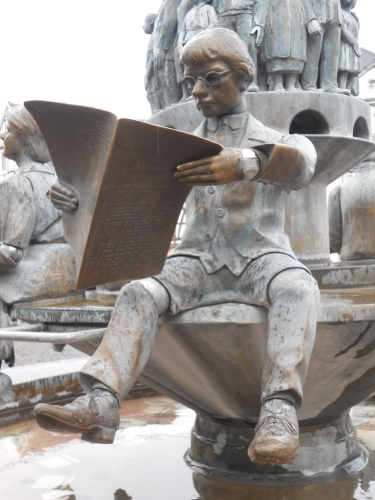
INNENPOLITISCHES / GESELLSCHAFT / VERGANGENHEITSPOLITIK
(Trotz angeblicher Hochkonjunktur…)
Rentenkasse mit 2,2 Milliarden Euro Minus
http://www.boerse-online.de/nachrichten/aktien/Presse-Ren...
Merkels Beliebtheit erreicht Zweijahreshoch
https://jungefreiheit.de/politik/deutschland/2017/merkels...
Über die Monarchin
Schily: Abrechnung mit Merkel
Von Rainer Zitelmann
https://www.tichyseinblick.de/feuilleton/medien/schily-ab...
Soziale Netzwerke
Kauder will Maas-Gesetz möglichst schnell beschließen
https://jungefreiheit.de/politik/deutschland/2017/kauder-...
Die Maas-Regeln – Angriff auf die Meinungsfreiheit
https://jungefreiheit.de/kultur/medien/2017/die-maas-rege...
Auch Thomas de Maizière fordert Zugriff auf Whatsapp-Daten
http://t3n.de/news/whatsapp-daten-maziere-fordert-zugriff...
Staatstrojaner: Bundestag hat das krasseste Überwachungsgesetz der Legislaturperiode beschlossen (Updates)
https://netzpolitik.org/2017/staatstrojaner-bundestag-bes...
Neues Gesetz führt zur totalen Überwachung der Bürger
https://www.youtube.com/watch?v=j-tRjC76CGs
Kritik an NetzDG
„Die freie Meinungsäußerung bleibt auf der Strecke“
https://jungefreiheit.de/politik/deutschland/2017/die-fre...
Gegen Haßpostings im Internet
Bundestag beschließt NetzDG
https://jungefreiheit.de/politik/deutschland/2017/bundest...
Bundesweiter Aktionstag
Großrazzia gegen Hetze im Internet
https://jungefreiheit.de/politik/deutschland/2017/grossra...
Steuergeld
Goldstaub für das Doppeleinhorn
von Felix Krautkrämer
https://jungefreiheit.de/kultur/medien/2017/goldstaub-fue...
Autobahnprivatisierung
Was sich jetzt für das Rückgrat der deutschen Infrastruktur ändert
http://www.focus.de/finanzen/praxistipps/autobahnprivatis...
Sahra Wagenknecht rastet aus über die Privatisierung der Autobahnen ! 01.06.2017
https://www.youtube.com/watch?v=t_9Oz1A5Zc0&feature=y...
Betreute Demokratie - das deutsche Missverständnis
http://www.achgut.com/artikel/demokratie_das_deutsche_mis...
Legal, illegal, scheißegal ist das unausgesprochene Motto der Groko
https://www.welt.de/debatte/kommentare/article166079900/L...
Eine AfD-Stellungnahme zur Klima-, Umwelt- und Energiepolitik
https://irisnieland.wordpress.com/2017/06/30/eine-afd-ste...
Bundeswehr
Das Schweigen der Männer
von Felix Krautkrämer
https://jungefreiheit.de/debatte/kommentar/2017/das-schwe...
Bundesregierung verbietet Erdoğan-Auftritt in Deutschland
https://jungefreiheit.de/politik/deutschland/2017/erdogan...
Kölner Anti-Terror-Farce
von Michael Paulwitz
https://jungefreiheit.de/debatte/kommentar/2017/koelner-a...
Anti-Terror-Demo
Özoguz: Nicht nur Moslems, sondern alle müssen sich vom Terror distanzieren
https://jungefreiheit.de/politik/deutschland/2017/oezoguz...
Köln Nur ein paar Hundert Muslime demonstrieren gegen Terror
https://www.welt.de/politik/deutschland/article165642675/...
Der Staat wird zum Zuhälter
Das neue "Prostituiertenschutzgesetz" dient vor allem den Staatsfinanzen
http://www.bff-frankfurt.de/artikel/index.php?id=1189
Abgeordneter klagt
Von AfD-Fraktion zum Schweigen gebracht
Immer wieder ist Heinrich Fiechtner auf der politischen Bühne als Außenseiter aufgefallen. Nun zieht der baden-württembergische AfD-Landtagsabgeordnete vor Gericht – gegen die eigene Partei.
http://www.faz.net/aktuell/politik/inland/afd-politiker-f...
(AfD fordert Straßenbenennung nach Ronald Reagan)
30 Jahre Reagan-Rede
„Herr Gorbatschow, öffnen Sie dieses Tor“
von Christian Vollradt
https://jungefreiheit.de/wissen/geschichte/2017/herr-gorb...
Helmut Kohl ist tot
16 Jahre regierte er die Bundesrepublik - länger als jeder andere Bundeskanzler. Helmut Kohl wurde als "Kanzler der Einheit" verehrt, polarisierte aber auch. Er starb am Freitagmorgen im Alter von 87 Jahren in seinem Haus in Oggersheim.
http://www.spiegel.de/politik/deutschland/helmut-kohl-ist...
Wir Kinder Helmut Kohls
von Dieter Stein
https://jungefreiheit.de/debatte/streiflicht/2017/wir-kin...

LINKE / KAMPF GEGEN RECHTS / ANTIFASCHISMUS / RECHTE
Die entfesselte Freiheit im Zeichen der Kulturrevolution – mit Folgen bei PayPal
https://sezession.de/57296/die-entfesselte-freiheit-im-ze...
Totalitäre Methoden
Plötzlich am Pranger
von Michael Paulwitz
https://jungefreiheit.de/debatte/kommentar/2017/ploetzlic...
"Deutschland den Deutschen"
Empörung über WhatsApp-Chat der AfD
http://www.rp-online.de/politik/deutschland/afd-leaks-sch...
SPD-Parteitag
Schulz nennt AfD „NPD light“, die nicht zu Deutschland gehöre
https://jungefreiheit.de/politik/deutschland/2017/schulz-...
AfD-Politiker Höcke gewinnt Prozess in Neubrandenburg
http://www.nordkurier.de/mecklenburg-vorpommern/afd-polit...
"Repolitisierung der Debatte" - Marc Jongen im Gespräch
Marc Jongen, einer der beiden Landessprecher der AfD in Baden-Württemberg, hat Alain de Benoist für die Zeitschrift "éléments" ein Interview gegeben. Hier die Übersetzung
https://sezession.de/57282/marc-jongen-%C2%BBgegen-techno...
Wegen Kritik an von der Leyen
Bundeswehr-Uni setzt AfD vor die Tür
https://jungefreiheit.de/politik/deutschland/2017/bundesw...
(SPD unterstützt offen "Antifa"-Gruppierung)
„Preis der Vielfalt“
SPD zeichnet Anti-AfD-Bündnis aus
https://jungefreiheit.de/politik/deutschland/2017/spd-zei...
(Studie von Wolfgang Schröder, Mitglied der Grundwertekommission der SPD…)
Die Arbeit der AfD in den Landtagen
http://www.juraforum.de/wissenschaft/die-arbeit-der-afd-i...
(Entscheidung für Abschaffung der demokratischen Chancengleichheit)
Grundgesetz wird geändert
Bundestag dreht NPD den Geldhahn zu
Die ohnehin klamme NPD soll in Zukunft noch weniger Geld bekommen: Der Bundestag beschließt, das Grundgesetz zu ändern und die rechtsextreme Partei so von der Parteienfinanzierung auszuschließen.
http://www.n-tv.de/politik/Bundestag-dreht-NPD-den-Geldha...
(Dazu…)
Parteienfinanzierung
Ein Verbot „light“
von Werner Patzelt
https://jungefreiheit.de/debatte/kommentar/2017/ein-verbo...
(Hauptsache "antirassistisch"…)
Auftritt einer linksradikalen Band
Alles scheiße in Bamberg?
von Thorsten Brückner
https://jungefreiheit.de/kultur/2017/alles-scheisse-in-ba...
(Mal wieder die alte Leier der "Toten Hosen"…)
Tote Hosen
Campino beklagt mangelndes Anti-Rechts-Engagement von Helene Fischer
https://jungefreiheit.de/kultur/2017/campino-beklagt-mang...
Linke Gewalt in Berlin
„Wir werden gesetzlose Gebiete schaffen“
https://www.welt.de/politik/deutschland/article165230230/...
Piratenpolitiker Thomas Goede
Hass-Tweet gegen angeschossene Polizistin
http://www.berliner-kurier.de/news/politik---wirtschaft/p...
„Interventionistsiche Linke“
Beim Thema Linksextremismus fehlen Özdemir die Worte
von Lukas Steinwandter
https://jungefreiheit.de/politik/deutschland/2017/beim-th...
Frankfurt
Dauerskandal: „Antifa“-Besetzung in Rödelheim
Stadt Frankfurt toleriert Jahrzehnte währenden Rechtsbruch
http://www.bff-im-roemer.de/index.php?id=44&no_cache=...
AfD-Stammtische
Wieder muß ein Gastwirt nach linksextremen Attacken schließen
von Lukas Steinwandter
https://jungefreiheit.de/politik/deutschland/2017/wieder-...
Gewalt gegen AfD
Sieben Attacken auf Schweriner AfD-Büro binnen zwei Wochen
https://jungefreiheit.de/politik/deutschland/2017/sieben-...
Vor G20-Gipfel in Hamburg
AfD-Fraktion erhält Anthrax-Drohung
https://jungefreiheit.de/politik/deutschland/2017/afd-fra...
Hamburg
Linkes Bündnis will AfD-Wahlkampf mit Aktionen stören
http://www.abendblatt.de/hamburg/kommunales/article210935...
Leipzig
Richterin ermuntert linke Gewalttäter zum Kampf gegen Rechts
https://jungefreiheit.de/politik/deutschland/2017/richter...
Berlin: Antifa, Senat und Polizei blockieren Identitären-Demo
http://www.pi-news.net/berlin-antifa-senat-und-polizei-bl...
(Antifa-Provinzposse in Offenbach. Da die Jungs im Hauptort der bevorstehenden Umvolkung schon lange unterbeschäftigt sind, müssen in irgendwelche Aktivitäten verfallen. Dass es ihnen dabei nicht um Diskussionen geht, hat die Volkshochschul-Leiterin mit einigen Jahrzehnten Verspätung bemerkt...)
Antifa-Aktivisten attackieren Vhs-Referenten
https://www.op-online.de/offenbach/vermummte-stuermen-vor...
BDS-Kampagne
Linksextreme brüllen Knesset-Abgeordnete in Humboldt-Uni nieder
https://jungefreiheit.de/politik/deutschland/2017/linksex...
Linksextreme Gewalt in Rigaer Straße nimmt laut Senat zu
https://jungefreiheit.de/allgemein/2017/linksextreme-gewa...
„Friedel 54“
Linksextreme behindern Räumung von Berliner Szenelokal
https://jungefreiheit.de/politik/deutschland/2017/linksex...
(Angriffe auf Bahnlinien)
Koordinierte Aktion
Polizeigewerkschaft bezeichnet Brandanschläge als Terror
https://jungefreiheit.de/politik/deutschland/2017/brandan...
Diskussion über Brandanschläge
Linke Feuerteufel mit reichlich Zündstoff
von Felix Krautkrämer
https://jungefreiheit.de/politik/deutschland/2017/linke-f...
Hamburg
G20-Soko ermittelt
Unbekannte lockern Radmuttern von Polizistenautos
https://jungefreiheit.de/politik/deutschland/2017/unbekan...
„Über die Bullen herfallen“
Linksextremisten drohen Polizei
https://jungefreiheit.de/politik/deutschland/2017/linksex...
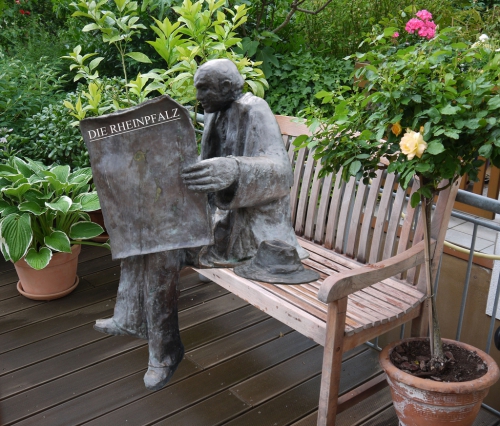
EINWANDERUNG / MULTIKULTURELLE GESELLSCHAFT
Pro Asyl und Co.
Asyl-Lobby fordert unbegrenzte Flüchtlingsaufnahme
https://jungefreiheit.de/politik/deutschland/2017/asyl-lo...
Grüne wollen syrische Dörfer in Osteuropa ansiedeln
https://jungefreiheit.de/politik/ausland/2017/gruene-woll...
Ska Keller will „Flüchtlinge“ in Osteuropa zwangsansiedeln
http://www.pi-news.net/ska-keller-will-fluechtlinge-in-os...
Franziska „Ska“ Keller - die Zweite
Eine Herrenmenschin aus Merkel-Deutschland
http://www.pi-news.net/eine-herrenmenschin-aus-merkel-deu...
NGOs als Menschenschleuser
Sie fluten Europa
von Michael Paulwitz
https://jungefreiheit.de/debatte/kommentar/2017/sie-flute...
Sonntagsheld (18) – O Captain, my Captain!
https://sezession.de/57312/sonntagsheld-(18)-%E2%80%93-o-...!
Sachsen
Köpping bedauert Abwanderung von Einwanderern
https://jungefreiheit.de/politik/deutschland/2017/koeppin...
Das Gespenst der Überalterung
Demografischer Wandel und Armutsmigration
https://www.tichyseinblick.de/meinungen/demografischer-wa...
Große Koalition beschließt Abschiebestopp nach Afghanistan
https://jungefreiheit.de/politik/deutschland/2017/grosse-...
Kommentar zum Abschiebestopp
Verantwortungslos und unzurechnungsfähig
von Michael Paulwitz
https://jungefreiheit.de/debatte/kommentar/2017/verantwor...
Libyen: Hilfsorganisationen bezahlen Schlepper für Einwanderer
https://jungefreiheit.de/politik/ausland/2017/libyen-hilf...
Calais
Tödlicher Unfall nach Straßen-Blockade durch Migranten
https://www.tag24.de/nachrichten/calais-toedlicher-unfall...
Behörden melden mehr Heimatreisen von Asylsuchenden
https://jungefreiheit.de/politik/deutschland/2017/behoerd...
Flüchtlingsumverteilung
Juncker kritisiert Blockadehaltung Polens und Ungarns
https://jungefreiheit.de/politik/ausland/2017/juncker-kri...
Ernüchternde Bilanz von Handwerk und Industrie
„Flüchtlinge als Arbeitskräfte bringen nichts“
Mercedes-Chef Dieter Zetsche glaubt an ein „neues Wirtschaftswunder“. Politik und Wirtschaft sehen offiziell „große Chancen“. Aber ist das die Realität? Kreishandwerksmeister Rudolf Waxenberger behauptet: „Flüchtlinge als Lehrlinge und Arbeitskräfte bringen nichts.“
https://www.merkur.de/lokales/erding/erding-ort28651/ernu...
Perfider Ramadan-Rummel
von Michael Paulwitz
https://jungefreiheit.de/debatte/kommentar/2017/perfider-...
Meinung
Ramadan als Machtdemonstration
von Michael Paulwitz
https://jungefreiheit.de/debatte/kommentar/2017/ramadan-a...
Ramadan jetzt Frankfurter Volksfest?
Im Stadtteil Rödelheim wird es am Abend anatolisch laut
http://www.bff-frankfurt.de/artikel/index.php?id=1185
"Ich schweige nicht" - Unbekannter stört Schweigeminute für Flüchtlinge am Kirchentag
https://www.youtube.com/watch?v=yHbHsCb_q9Y
Geschmacklose Aktion gegen Flüchtlinge
Der Sarg-Skandal von Eppendorf
http://www.mopo.de/hamburg/geschmacklose-aktion-gegen-flu...
Asylkrise: Über eine Milliarde Euro vergeudet
https://jungefreiheit.de/politik/deutschland/2017/asylkri...
Hattingen erläßt Haushaltssperre wegen Flüchtlingskosten
https://jungefreiheit.de/politik/deutschland/2017/hatting...
Nur wenige Bewohner
Münchner Asylunterkunft verursacht Millionenkosten
https://jungefreiheit.de/politik/deutschland/2017/muenchn...
Zahl der Flüchtlinge, die Hartz IV beziehen, nimmt rapide zu
https://www.waz.de/politik/zahl-der-fluechtlinge-die-hart...
Wolfsburg Familie kämpft für den IS – und erhält weiter Sozialleistungen
https://www.welt.de/politik/article165450291/Familie-kaem...
Bochum
Aufnahme von Flüchtlingskindern
Klassengemeinschaft der Integration geopfert
https://jungefreiheit.de/politik/deutschland/2017/klassen...
(Fundis gegen Realo. Interner Streit unter Einwanderungslobbyisten…)
Schulpflicht für Asylbewerber
Erfurts SPD-Oberbürgermeister fliegt aus Flüchtlingsverein
https://jungefreiheit.de/politik/deutschland/2017/erfurts...
(Die übliche Herzschmerz-Story zur Ablenkung von den Folgen… Petitionen unterschreiben kostet eben persönlich erst einmal noch nichts…)
„Weil er mein Freund ist“
Eine Schule kämpft gegen die Abschiebung des 16-jährigen Fadi
https://www.op-online.de/hessen/wiesbadener-schule-kaempf...
Nürnberg
Gewaltsame Proteste
Polizei verteidigt Abschiebeversuch: Afghane droht mit Anschlag
https://jungefreiheit.de/politik/deutschland/2017/polizei...
Asylbetrug: Geschäft mit falschen Vätern boomt
https://jungefreiheit.de/politik/deutschland/2017/asylbet...
Niedersachsen
Arbeitsvermittlungsstelle zahlt Flüchtling Taxi zur Arbeit
https://jungefreiheit.de/politik/deutschland/2017/arbeits...
Musikfestival auf dem Nürburgring
„Rock am Ring“ wegen Terrorgefahr unterbrochen
https://jungefreiheit.de/politik/deutschland/2017/rock-am...
Jetzt müssen wir uns zuhause gegen den “Hindukusch” verteidigen
http://www.achgut.com/artikel/auf_dem_weg_in_den_ausnahme...
Asylbewerber sorgen für Kriminalitätsanstieg
https://jungefreiheit.de/politik/deutschland/2017/asylbew...
Ines Laufer: Die „Flüchtlings“-Kriminalität zwischen Fakten und Medienlügen
Die Polizeiliche Kriminalstatistik (PKS) für das Jahr 2016 birgt heftigen faktischen Sprengstoff in Bezug auf die Kriminalität der "Flüchtlinge". Gastautorin Ines Laufer ist in die Tiefen der Statistik abgetaucht, um die Fakten - für jeden verständlich und nachprüfbar - aufzubereiten.
http://www.epochtimes.de/politik/welt/ines-laufer-die-flu...
Niedersachsen
Syrer werden 176 Straftaten zur Last gelegt
https://jungefreiheit.de/kultur/gesellschaft/2017/syrer-w...
Dresden
Asylbewerber randalieren wegen Verletzung des Ramadan
https://jungefreiheit.de/politik/deutschland/2017/asylbew...
Tatort Asylunterkunft
Arnschwang (Bayern): Afghane ersticht fünfjähriges Kind
http://www.pi-news.net/arnschwang-bayern-afghane-ersticht...
Oberpfalz
Mann ersticht Kind in Asylunterkunft - wohl wegen Ruhestörung
http://www.augsburger-allgemeine.de/bayern/Mann-ersticht-...
Saarland
Syrer ersticht Rotkreuz-Mitarbeiter
https://jungefreiheit.de/politik/deutschland/2017/syrer-e...
(Angeblich "kein Mord")
Cottbus
19 Messerstiche, aus dem Fenster geworfen, Kehle durchgeschnitten
https://www.welt.de/vermischtes/article165382489/19-Messe...
„Gefährliche Körperverletzung“
Obdachlosen-Zündler: Nur Haupttäter bekommt Haftstrafe
https://jungefreiheit.de/politik/deutschland/2017/obdachl...
Bonn
Syrischer Sextäter springt auf Flucht vor Polizei in den Rhein
https://jungefreiheit.de/kultur/gesellschaft/2017/syrisch...
Frankfurt am Main
Fehde zwischen Familienclans löst Polizei-Großeinsatz aus
https://www.welt.de/vermischtes/article165921535/Fehde-zw...
Herzberg
Vorzeigeflüchtling schneidet Friseurchefin in den Hals
https://jungefreiheit.de/allgemein/2017/vorzeigefluechtli...
http://www.lr-online.de/regionen/elbe-elster/herzberg/Syr...
Ostkreuz
Nach Kinderwagen-Rempler: Mutter bespuckt und geschlagen
Das unbekannte Paar griff die 24-Jährige nach einem harmlosen Kinderwagen-Rempler heftig an. Nun sucht die Bundespolizei nach Zeugen.
https://www.morgenpost.de/berlin/polizeibericht/article21...
Jüterbog (Teltow-Fläming)
Drei junge Männer greifen Vater und Tochter an
Sie pöbeln Passanten an, belästigen eine 18-Jährige und greifen deren Vater an: Drei junge Männer haben am Montagabend am Bahnhof Jüterbog randaliert und sogar mit Steinen aus dem Gleisbett geschmissen. Ein Lokführer hatte den Vorfall beobachtet und die Polizei alarmiert.
http://www.maz-online.de/Lokales/Teltow-Flaeming/Drei-jun...
Frankfurt
Mit abgeschlagener Glasflasche
Angriff Millimeter an der Halsschlagader vorbei
https://www.op-online.de/region/frankfurt/angriff-millime...
(Tunesier in Linz)
Mann tötete aus Hass auf FPÖ Ehepaar – Kanzler Kern "tief bestürzt" –
http://derstandard.at/2000060637242/Verdaechtiger-toetete...
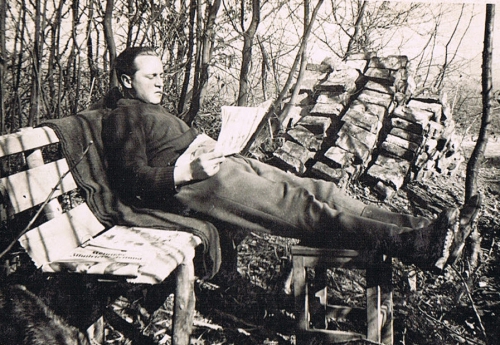
KULTUR / UMWELT / ZEITGEIST / SONSTIGES
Der asoziale Wohnungsbau geht weiter
https://www.welt.de/debatte/kommentare/article165154871/D...
Fassadenbrände: Dämmokratie leben!
http://www.achgut.com/artikel/fassadenbrand_in_london_dae...
„Betonmuslime“
Katar verhüllt barbusige Figur an Botschaftsgebäude
https://www.welt.de/vermischtes/article165581334/Katar-ve...
IS sprengt offenbar Moschee in Mossul
"Das Eingeständnis der Niederlage"
http://www.spiegel.de/politik/ausland/is-sprengt-offenbar...
(Opfer eines religiösen Anschlags?)
Norwegen
"Trollpenis" abgehackt - viele Spenden für kaputten Felsen
http://www.spiegel.de/reise/europa/norwegen-trollpenis-ab...
(Homosexuelle Vielehe in Kolumbien)
Dreier-Ehe
Männer-Trio teilt sich Haus, Bett, alles
https://www.welt.de/vermischtes/article165517995/Maenner-...
(Lobpreisung des Mannes)
Montagsheld (17) – Check your privilege!
Irgendwann mußte es soweit kommen – der erste Archetyp betritt das Podium.
https://sezession.de/57306/montagsheld-(17)-%E2%80%93-che...!
Kommunikationsplattform Gab
„Wer Meinungen reguliert, will Gedanken kontrollieren“
https://jungefreiheit.de/debatte/interview/2017/wer-meinu...
(Läuterung oder Beruhigungspille?...)
DPA will Täterherkuft häufiger angeben
https://jungefreiheit.de/kultur/medien/2017/dpa-will-taet...
Ludwig-Börne-Preis
Merkel-Kritiker Safranski ausgezeichnet
http://hessenschau.de/kultur/merkel-kritiker-safranski-au...
Das neurechte Wäldchen
Von Martin Sellner
https://sezession.de/57278/?komplettansicht=1
Der Sonntagsheld (14) - Im Würgegriff der Unheimlichkeiten
https://sezession.de/57279/der-sonntagsheld-(14)---im-wue...
Hatune Dogans "Helfende Hände"
https://sezession.de/57287/hatune-dogans-%22helfende-haen...
Mein Schnellkurs in moralischem Höhenflug
Von Alain Pichard
http://www.achgut.com/artikel/mein_praktischer_schnellkur...
Mensch, Untermensch, Unmensch
https://sezession.de/57281/mensch,-untermensch,-unmensch
(Aufregung um Sieferle-Buch)
Buch-Empfehlung für NDR und SZ
Redakteur des "Spiegel" gab rechtsextreme Leseempfehlung
http://www.faz.net/aktuell/politik/inland/wer-setzte-rech...
Sachbücher des Monats Juni 2017
http://www.ndr.de/kultur/buch/Sachbuecher-des-Monats-Juni...
NDR Kultur setzt Zusammenarbeit aus
http://www.ndr.de/kultur/NDR-Kultur-setzt-Zusammenarbeit-...
Panikreaktionen - Sieferle auf Platz 1
https://sezession.de/57290/panikreaktionen---sieferle-auf...
Finis Germania
Ein Sieg für die dumme Linke
von Karlheinz Weißmann
https://jungefreiheit.de/debatte/kommentar/2017/ein-sieg-...
Finis Germania: Spiegel-Redakteur Johannes Saltzwedel tritt aus Sachbuch-Jury zurück
In eigener Sache: Der Fall "Finis Germania"
Die fragwürdige Nominierung eines rechtslastigen Buches für die "Sachbücher des Monats".
http://www.spiegel.de/kultur/literatur/finis-germania-spi...
Skandal um Sieferle-Buch
Der Speit-Effekt
von Felix Krautkrämer
https://jungefreiheit.de/debatte/kommentar/2017/der-speit...
(Zum "antifaschistischen" Autor Andreas Speit und der Aufregung um das Sieferlel-Buch)
Die Denunzianten und der Streisand-Effekt
https://sezession.de/57289/?komplettansicht=1
Annotationen zum Sieferle-Skandal
https://sezession.de/57291/annotationen-zum-sieferle-skan...
Offener Brief an Herfried Münkler
https://sezession.de/57298/offener-brief-an-herfried-muen...
Bemerkungen zur Verleumdung Rolf Peter Sieferles durch den "Spiegel"
von Frank Böckelmann
https://www.facebook.com/525624937616422/photos/a.5257563...
Finis Germania (JF-TV Im Fokus): Der Fall Rolf Peter Sieferle
https://www.youtube.com/watch?v=cYcT5ztFXtI
„Fall Sieferle“
Geheimes Einverständnis
von Karlheinz Weißmann
https://jungefreiheit.de/debatte/kommentar/2017/geheimes-...
Blick auf den Gegner (I): Ulrike Guérot
https://sezession.de/57299/blick-auf-den-gegner-(i):-ulri...
Mutige Aktion: Bild veröffentlicht die umstrittene Antisemitismus-Doku, die Arte und der WDR nicht zeigen wollen
http://meedia.de/2017/06/12/mutige-aktion-bild-veroeffent...
(dazu…)
Dokumentation
Judenhaß hat viele Gesichter
https://jungefreiheit.de/kultur/medien/2017/judenhass-hat...
Dialoge mit H.: Rahmenbedingungen
H. reichte mir von hinten zwei handgeschriebene Zettel auf den Schreibtisch, dies sei sein Beitrag zum Zusammenleben mit Rechten.
https://sezession.de/57304/?komplettansicht=1
(50. Todestag von Benno Ohnesorg)
Benno Ohnesorg
Der euphorische Funken
von Karlheinz Weißmann
https://jungefreiheit.de/wissen/geschichte/2017/der-eupho...
Karlheinz Weißmann und die Hippies
https://sezession.de/57309/karlheinz-weissmanns-missverst...
(Konsumgesellschaft)
Umfrage zum Einzelhandel
Mehrheit will sonntags einkaufen können
http://www.spiegel.de/wirtschaft/service/einzelhandel-meh...
(Das nächste Überwachungsgerät…)
Apple präsentiert HomePod
Das sind die inneren Werte des Siri-Lautsprechers
http://www.focus.de/digital/multimedia/technik-siri-lauts...
http://www.stern.de/digital/smartphones/apple-homepod--da...
Zu viele Missverständnisse um WTF - Taekwondo-Verband ändert seinen Namen
https://www.welt.de/newsticker/news1/article165951565/Zu-...
Generalmajor a. D. Schultze-Rhonhof: Der lange Weg zum 2. Weltkrieg
https://www.youtube.com/watch?v=cBOSuctccRM&feature=y...
Die deutschen Nationalsymbole
https://www.youtube.com/watch?v=msP7oJ7oUYc
Heinz Rudolf Kunze - Willkommen liebe Mörder
https://www.youtube.com/watch?v=MqngpOweOKI
(und Kunze distanzierte sich natürlich gleich von der "Umarmung seines Liedes durch fremdenfeindliche Strömungen". Das Spiel hat er also verloren…)
https://www.morgenpost.de/kultur/article207092267/Dieses-...
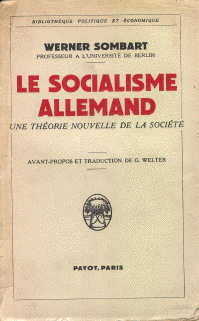
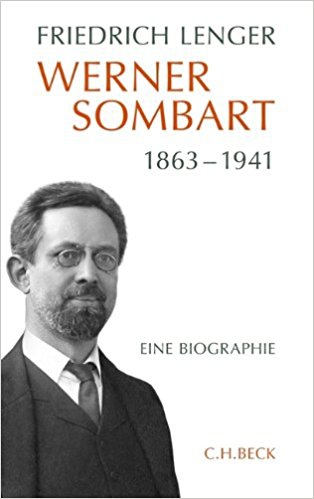






 del.icio.us
del.icio.us
 Digg
Digg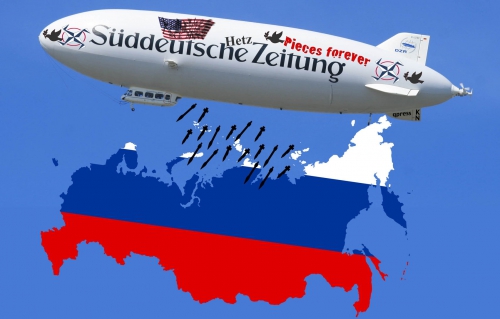
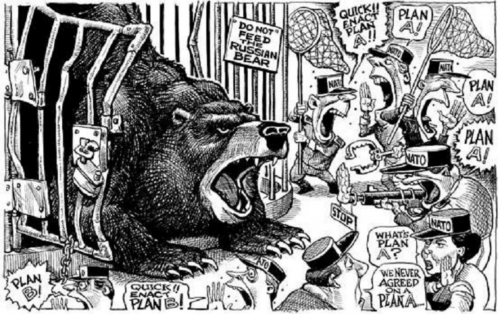
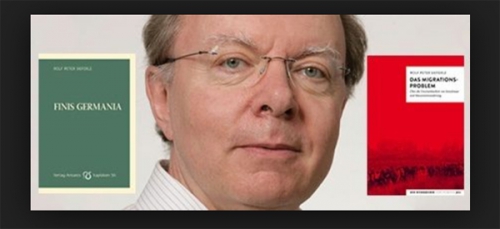





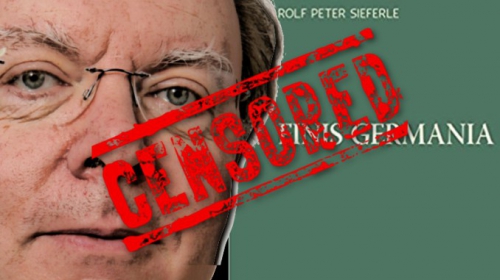
 Auch der vielfach in der Geschichtsschreibung aufgenommene Terminus vom „deutschen Sonderweg“, der mit dieser Problematik eng verknüpft ist, lasse sich allein mit dem Hinweis darauf relativieren, dass er die Annahme eines „Normalweges“ voraussetze. Dieser wiederum sei abhängig vom Definierenden und damit ebenso hypothetisch wie an Zeit und persönlichen Standort gebunden.
Auch der vielfach in der Geschichtsschreibung aufgenommene Terminus vom „deutschen Sonderweg“, der mit dieser Problematik eng verknüpft ist, lasse sich allein mit dem Hinweis darauf relativieren, dass er die Annahme eines „Normalweges“ voraussetze. Dieser wiederum sei abhängig vom Definierenden und damit ebenso hypothetisch wie an Zeit und persönlichen Standort gebunden. 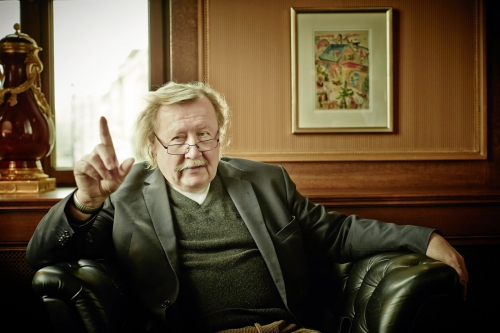
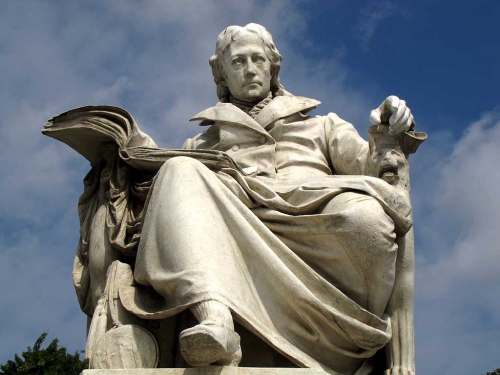
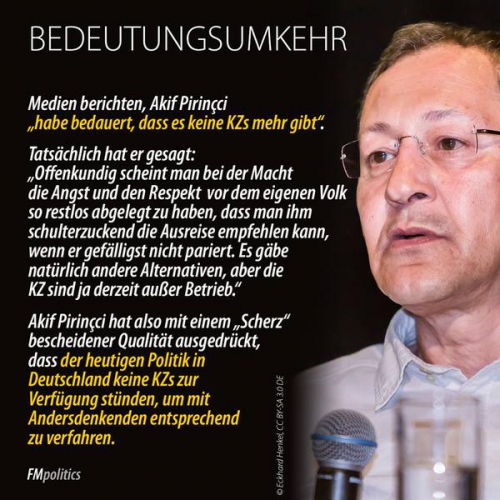
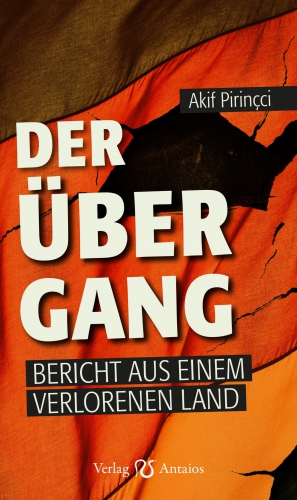
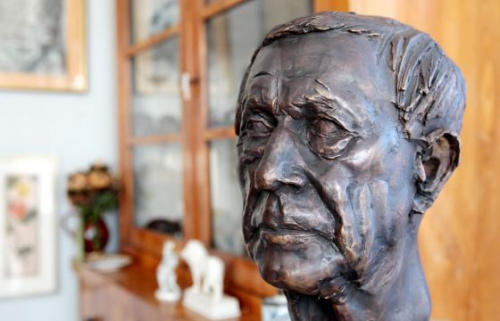
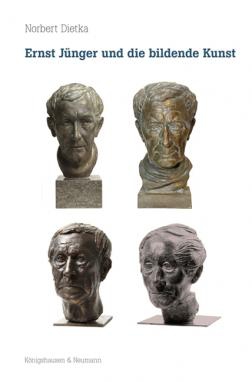
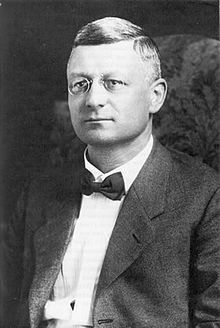
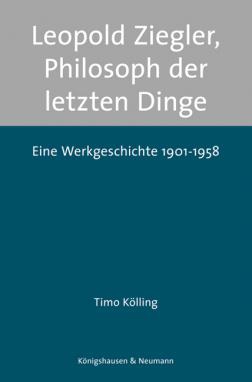
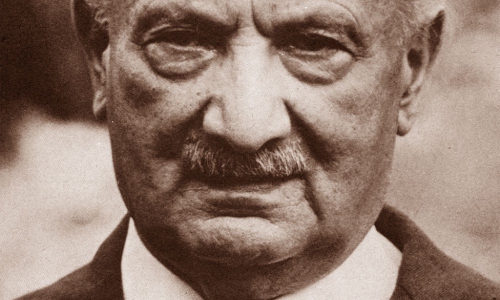
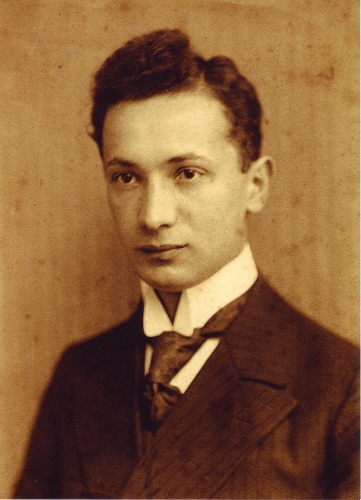
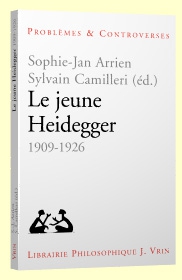 EUR 28,00
EUR 28,00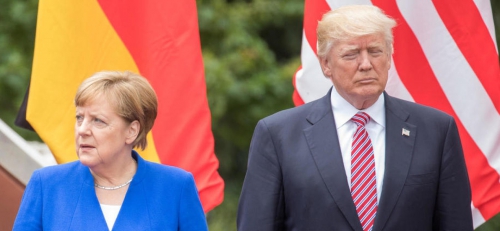
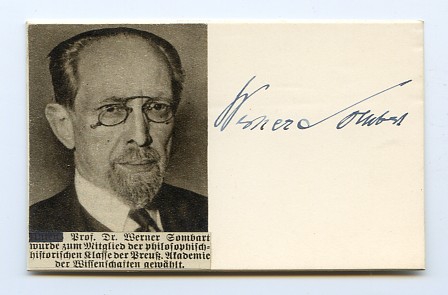
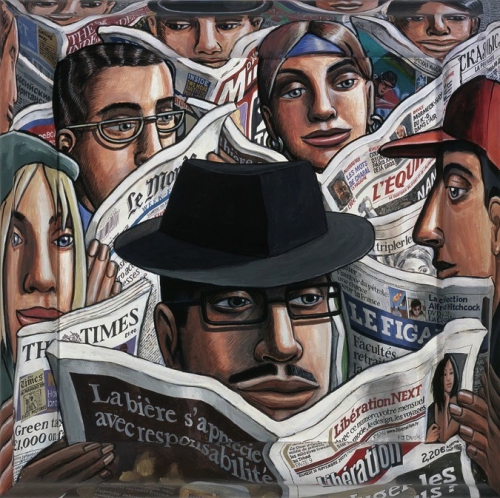
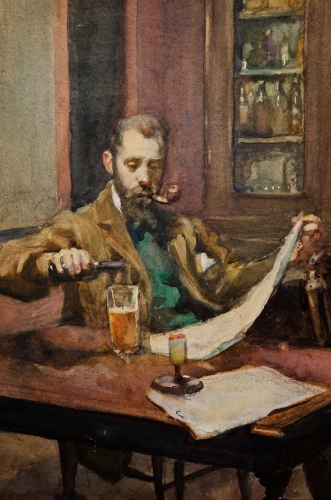

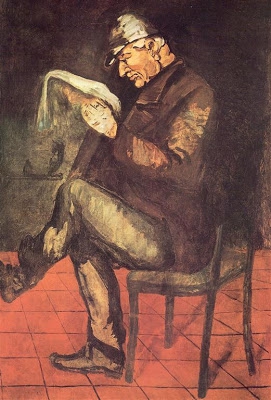

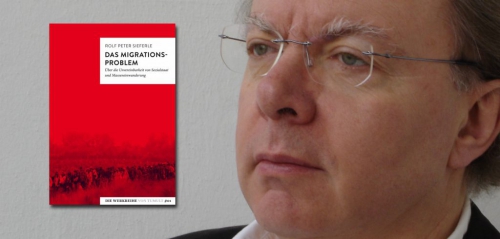
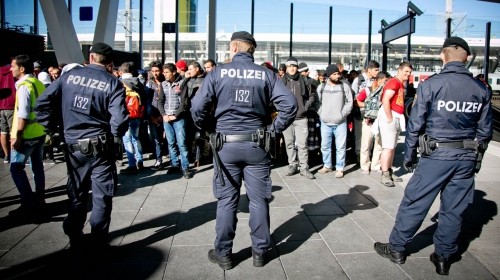
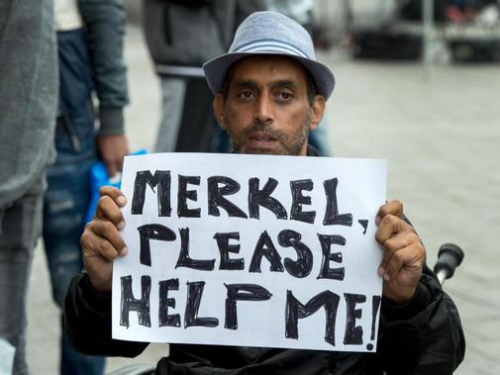
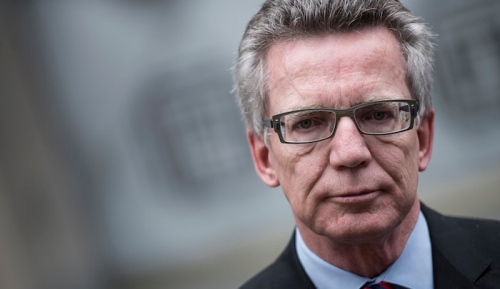
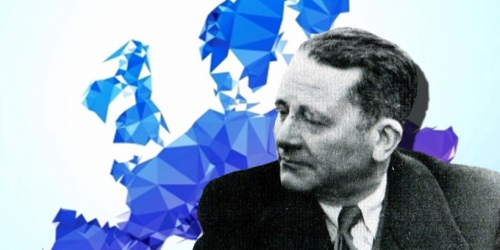
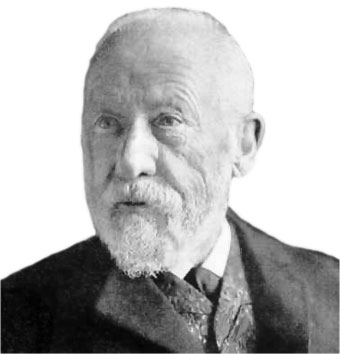
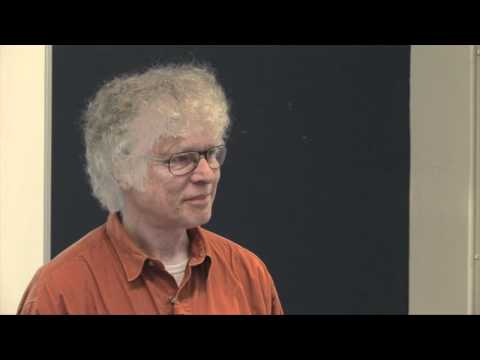
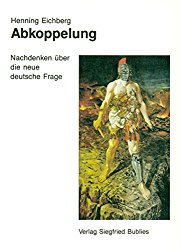
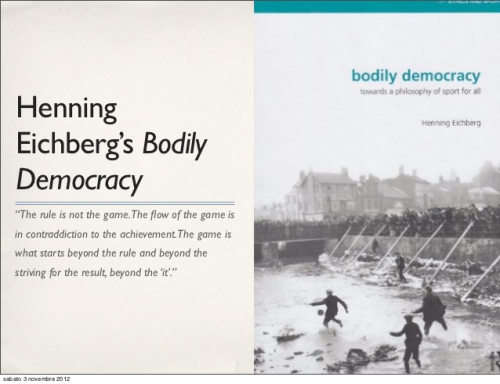

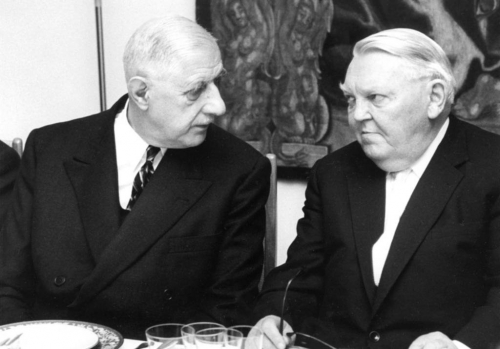
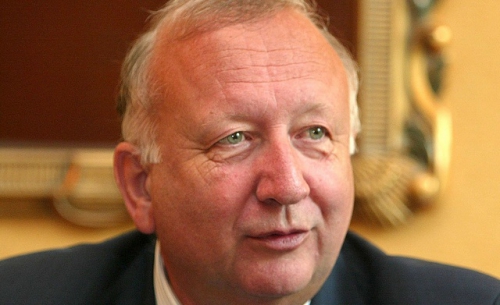
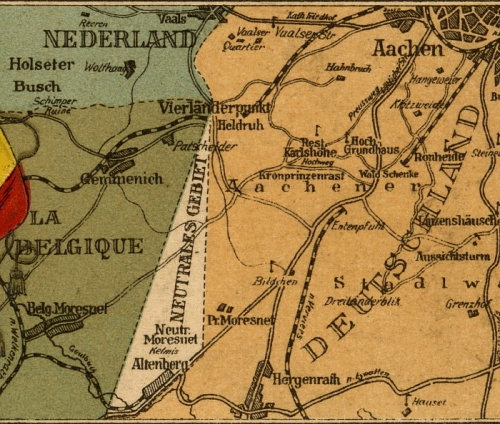
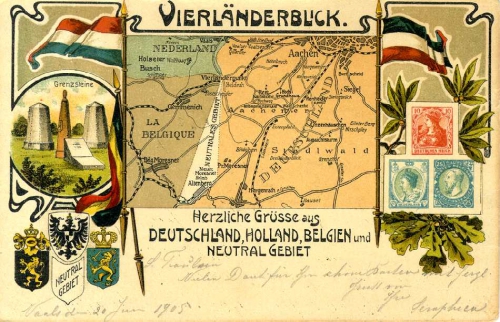
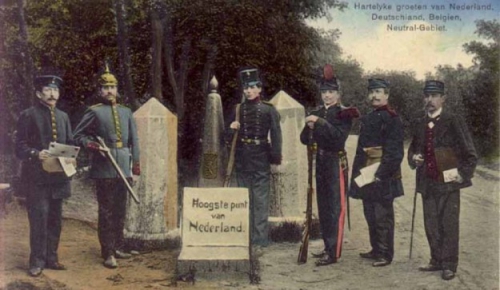
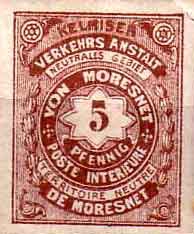 Neutral-Moresnet ne connaissait ni tribunal ni élections ni service militaire : pour autant, l’anarchie n’y régnait pas. L’ordre y était maintenu par des policiers belges et prussiens qui avaient l’autorisation, si cela s’avérait nécessaire, de franchir la frontière pour cueillir des délinquants. La Belgique et la Prusse se partageaient la masse fiscale. Il n’y avait aucune taxe sur les importations et les exportations, ce qui avantageait la contrebande. Le village disposait de trois gares : Hergenrath pour les grandes lignes qui reliaient Liège à l’Allemagne ; une gare cul-de-sac qui avait, elle, un statut de neutralité et qui s’étendait sur quelques centaines de mètres au-delà de la zone neutre ; enfin, une troisième gare en direction de Moresnet sur la ligne Tongres/Aix-la-Chapelle. L’entreprise qui donnait du travail était pour l’essentiel la société des mines. Elle ne négligeait pas le bien-être des travailleurs qui bénéficiaient de temps libres, largement encouragés. Des chœurs et des orchestres de mineurs furent créés ainsi que pas moins de sept associations de « Schützen », une société de pêcheurs et plusieurs sociétés de carnaval. La densité des bistrots y était inégalée. Quand éclate la première guerre mondiale, le petit territoire de Neutral-Moresnet est immédiatement occupé par les armées du Kaiser mais reste, du moins sur le plan formel, administré conjointement par les Belges et les Prussiens. Le Traité de Versailles donne le territoire à la Belgique et s’appelle désormais « Kelmis » (en allemand et en néerlandais) et « La Calamine » (en français). Il s’était appelé « Kalmis » jusqu’en 1972.
Neutral-Moresnet ne connaissait ni tribunal ni élections ni service militaire : pour autant, l’anarchie n’y régnait pas. L’ordre y était maintenu par des policiers belges et prussiens qui avaient l’autorisation, si cela s’avérait nécessaire, de franchir la frontière pour cueillir des délinquants. La Belgique et la Prusse se partageaient la masse fiscale. Il n’y avait aucune taxe sur les importations et les exportations, ce qui avantageait la contrebande. Le village disposait de trois gares : Hergenrath pour les grandes lignes qui reliaient Liège à l’Allemagne ; une gare cul-de-sac qui avait, elle, un statut de neutralité et qui s’étendait sur quelques centaines de mètres au-delà de la zone neutre ; enfin, une troisième gare en direction de Moresnet sur la ligne Tongres/Aix-la-Chapelle. L’entreprise qui donnait du travail était pour l’essentiel la société des mines. Elle ne négligeait pas le bien-être des travailleurs qui bénéficiaient de temps libres, largement encouragés. Des chœurs et des orchestres de mineurs furent créés ainsi que pas moins de sept associations de « Schützen », une société de pêcheurs et plusieurs sociétés de carnaval. La densité des bistrots y était inégalée. Quand éclate la première guerre mondiale, le petit territoire de Neutral-Moresnet est immédiatement occupé par les armées du Kaiser mais reste, du moins sur le plan formel, administré conjointement par les Belges et les Prussiens. Le Traité de Versailles donne le territoire à la Belgique et s’appelle désormais « Kelmis » (en allemand et en néerlandais) et « La Calamine » (en français). Il s’était appelé « Kalmis » jusqu’en 1972.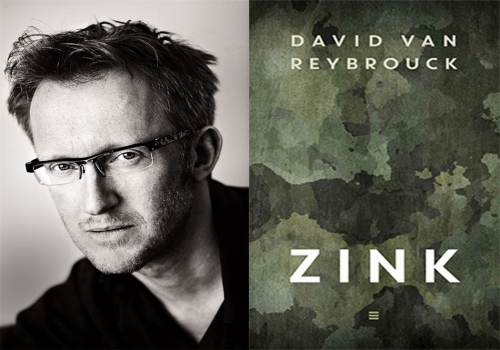
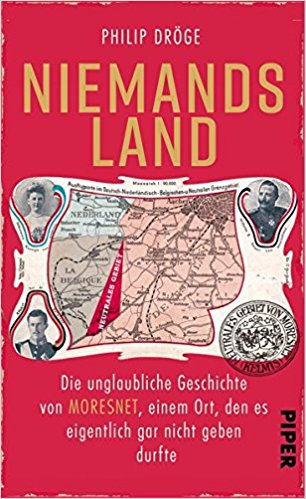 Ainsi arrive dans cet eldorado de la calamine une certaine Maria Rixen, servante allemande engrossé par son patron. Elle y cherche le bonheur, refuse l’exclusion qu’un siècle encore très pudibond inflige aux filles-mères en Prusse protestante. Elle accouche d’un garçon, confié, comme le veut l’époque, à une famille d’accueil : le petit Joseph Rixen est débaptisé dans la pratique car la maisonnée compte déjà un petit Joseph. On l’appelle Emile Pauly. Un gamin à double identité. En 1914, il devient allemand. En 1919, belge. En 1923, l’armée belge l’appelle comme conscrit. Il doit aller occuper la Ruhr. En 1940, il redevient allemand et est incorporé dans la Wehrmacht, encaserné dans la même caserne qu’il occupait à Krefeld sous l’uniforme belge. Il se sent belge, baptise son septième fils « Léopold », en l’honneur du roi. Il déserte mais est arrêté par des résistants qui le traitent en ennemi. Une belle région qui a été tiraillée entre trois pays. Aujourd’hui existe une structure européenne nommée l’Euroregio qui regroupe les provinces belges de Limbourg et de Liège, l’arrondissement d’Aix-la-Chapelle/Düren et la province néerlandaise du Limbourg (avec Maastricht), ce qui englobe tout le territoire de la « communauté germanophone de Belgique (Eupen, Saint-Vith et Malmédy). Les destins personnels au cours du 20ème siècle sont souvent complexes et peuvent servir de matière à des romans poignants. On aurait espéré plus de biographies personnelles. En effet, que n’ai-je pas entendu de récits trop fragmentaires de tel résistant (qui se germanisera après la guerre en épousant une belle Rhénane), de tel « malgré-lui » expédié en Russie, en France ou en Norvège, de tel Aixois d’origine wallonne mais de nationalité allemande, du prisonnier allemand devenu, contraint et forcé, mineur en pays liégeois (et qui a voulu y rester), de cet adjudant de carrière wallon qui a décidé de finir ses jours en Rhénanie car la vie y est plus conviviale, d’un Verviétois de mère allemande et de père wallon engagé sur le front russe, de tel Volksdeutsche habitant Liège ou natif de la Cité ardente qui ne saura pour qui opter, etc. Nos deux auteurs ont un message : revenir aux temps joyeux de Neutral-Moresnet.
Ainsi arrive dans cet eldorado de la calamine une certaine Maria Rixen, servante allemande engrossé par son patron. Elle y cherche le bonheur, refuse l’exclusion qu’un siècle encore très pudibond inflige aux filles-mères en Prusse protestante. Elle accouche d’un garçon, confié, comme le veut l’époque, à une famille d’accueil : le petit Joseph Rixen est débaptisé dans la pratique car la maisonnée compte déjà un petit Joseph. On l’appelle Emile Pauly. Un gamin à double identité. En 1914, il devient allemand. En 1919, belge. En 1923, l’armée belge l’appelle comme conscrit. Il doit aller occuper la Ruhr. En 1940, il redevient allemand et est incorporé dans la Wehrmacht, encaserné dans la même caserne qu’il occupait à Krefeld sous l’uniforme belge. Il se sent belge, baptise son septième fils « Léopold », en l’honneur du roi. Il déserte mais est arrêté par des résistants qui le traitent en ennemi. Une belle région qui a été tiraillée entre trois pays. Aujourd’hui existe une structure européenne nommée l’Euroregio qui regroupe les provinces belges de Limbourg et de Liège, l’arrondissement d’Aix-la-Chapelle/Düren et la province néerlandaise du Limbourg (avec Maastricht), ce qui englobe tout le territoire de la « communauté germanophone de Belgique (Eupen, Saint-Vith et Malmédy). Les destins personnels au cours du 20ème siècle sont souvent complexes et peuvent servir de matière à des romans poignants. On aurait espéré plus de biographies personnelles. En effet, que n’ai-je pas entendu de récits trop fragmentaires de tel résistant (qui se germanisera après la guerre en épousant une belle Rhénane), de tel « malgré-lui » expédié en Russie, en France ou en Norvège, de tel Aixois d’origine wallonne mais de nationalité allemande, du prisonnier allemand devenu, contraint et forcé, mineur en pays liégeois (et qui a voulu y rester), de cet adjudant de carrière wallon qui a décidé de finir ses jours en Rhénanie car la vie y est plus conviviale, d’un Verviétois de mère allemande et de père wallon engagé sur le front russe, de tel Volksdeutsche habitant Liège ou natif de la Cité ardente qui ne saura pour qui opter, etc. Nos deux auteurs ont un message : revenir aux temps joyeux de Neutral-Moresnet.
Der Untertitel dieses Buches, Über die Unvereinbarkeit von Sozialstaat und Masseneinwanderung, ist dagegen irreführend. Das ist gut so. Zu diesem Thema gäbe es schließlich wirklich nichts mehr zu sagen. Wer bis jetzt nicht begriffen hat, daß ein Solidarsystem nur aufgrund der Exklusivität seiner Leistungen funktionieren kann, daß auf gut Deutsch „wir nicht das Sozialamt der Welt sein können“, ohne unsere Sozialsysteme durch Überbeanspruchung in den Zusammenbruch zu treiben, der wird es nie verstehen.
Zum Glück hat Rolf Peter Sieferle (1949-2016) weit mehr zu bieten als diese Trivialität. In Das Migrationsproblem versucht er das Phänomen der Masseneinwanderung innerhalb des funktionalen Rahmens der heutigen westlichen Demokratie zu erklären und geschichtlich einzuordnen. Das alles geschieht auf knappen 124 Seiten. Sieferles Problem besteht daher nicht, wie der Titel befürchten ließ, in der ewigen Wiederholung des bereits Gesagten. Im Gegenteil: Bei diesem Großessay – das Wort „Studie“ taugt hier wirklich nicht – muß er sich den Vorwurf gefallen lassen, die Masse gebündelt präsentierter Einsichten kaum zusammenhalten zu können.
Ebenso lesbar wie umfassend
Trotz des Mangels an innerer Struktur bleibt das Buch jedoch ebenso lesbar, wie es umfassend ist. Es gelingt Sieferle vom Kern seiner Erörterung, der destruktiven Wechselwirkung zwischen Sozialstaat und Einwanderung, in welcher der Sozialstaat die Einwanderer anzieht und diese den Sozialstaat überdehnen, Verbindungen in fast alle Richtungen aufzubauen.
Er beginnt mit den Ursachen der Migration und macht deutlich, daß es angesichts der Bevölkerungsexplosion der Dritten Welt keinen relevanten Unterschied zwischen Wirtschaftsmigranten und Bürgerkriegsflüchtlingen gibt. Vom welthistorisch unvermeidlichen Rückgang der „Bürgerschaftsrente“ in den alten Industrieländern geht er über zur Entlarvung der verschiedenen Narrative, mit denen die Politik der Masseneinwanderung ihr Handeln bemäntelt.
Einwanderer stoßen nicht in „leere Räume“
Insbesondere eine einfache Erkenntnis verdient es gerade auch von den Gegnern des multikulturellen Experiments zur Kenntnis genommen zu werden: Die derzeitige Masseneinwanderung hat nichts mit der rückläufigen Demographie der entwickelten Länder zu tun. Diese ist vielmehr eine gesunde Entwicklung in einer Zeit, in der das Massensterben durch Infektionskrankheiten glücklicherweise der Vergangenheit angehört.
Die „Invasoren“ (org. Sieferle) stoßen nicht in leere Räume vor. Im Gegenteil, sie ziehen normalerweise aus dünner besiedelten in dichter besiedelte Gebiete. Sieferle leugnet nicht den von Gunnar Heinsohn postulierten demographischen Druck des Jugendüberschusses, aber die komplementäre Idee eines demographischen Soges aus dem kinderarmen Europa, der ja immer ein „selber schuld“ impliziert, verweist er ins Reich der Legenden. Dasselbe gilt für die sich selbst so bezeichnende antiimperiale Ideologie, die die Armut der Dritten Welt durch angeblich ausbeuterischen Handel mit der Ersten erklärt. Als ob diese Länder nicht schon lange vor der Kolonialzeit arm gewesen wären und das Handelsvolumen der Industrieländer untereinander nicht ihren Warenaustausch mit den Entwicklungsländern um ein Mehrfaches überstiege.
Die ochlokratische Degeneration
Dabei spricht Sieferle den Europäern keineswegs die Verantwortung für ihr derzeitiges Dilemma ab. Im Gegenteil, er betrachtet ihre gegenwärtigen politischen Systeme als unreformierbar korrumpiert. Manchmal beschleicht einen dabei der Verdacht, der unspektakuläre Titel des Buches diene der Verschleierung, um zumindest das Geschrei der Sorte bundesrepublikanischer Kritikaster abzuhalten, die solch ein Buch sowieso nicht lesen, aber bei einer treffenderen Inhaltsbeschreibung schon wegen des Titels in das übliche Gekreische verfallen wären.
Sieferle sieht unsere Demokratie jedenfalls in vollem ochlokratischen Verfall, der sich an der steigenden Staatsverschuldung, die ja nichts anderes als Konsum auf Pump ist, geradezu messen lasse. Kurz erörtert er die Probleme der verschiedenen Formen staatlicher Degeneration um schließlich die Frage zu stellen, ob das chinesische System nicht besser geeignet wäre die Nachhaltigkeitsprobleme des 21. Jahrhunderts zu bewältigen.
Universalistische Ethik und tribalistische Moral
In dieser Ochlokratie wirke nun die universalistische Ethik der Gleichheitsideologie katastrophal. Das infantilisierte Volk wähle auch in der Ethik den Weg des geringsten Widerstandes und finde nichts dabei, sich durch die Aufnahme unintegrierbarer „Barbaren“ (org. Sieferle) jenes gute Gewissen zu kaufen, daß in den Wohlfahrtszonen zum Lebensstandard gehöre.
Hier liegt jedoch auch die größte Schwäche des Buches. Sieferle, der sonst weit mehr Erscheinungen erörtert, als hier behandelt werden können, schweigt sich über die Entstehung und Verbreitung der multikulturellen Ideologie aus. Sie scheint ihm vom Himmel gefallen, ein unabwendbares Schicksal der abendländischen Zivilisation. Lediglich den Nationalsozialismus macht er als Ursache aus. Hier verfällt Sieferle jenem ganz speziellen konservativen Auschwitzkult, der Hitler die Schuld am eigenen Versagen zuschiebt. Angesichts eines solchen Verhängnisses kommt es ihm gar nicht mehr in den Sinn sich zu fragen, ob die gegenwärtige metapolitische Misere nicht vielmehr das Ergebnis harter propagandistischer Arbeit der Linken war, die mit ebensolchen Anstrengungen auch in die Mülltonne der Geschichte getreten werden kann. Stattdessen nimmt das Buch entschieden defätistische Züge an.
Wieder einmal die Deutschen
Mit dem Holocaust als Ursache des Multikulturalismus stößt Sieferle auch auf eine merkwürdige Version der These vom deutschen Sonderweg, die sich durch das ganze Buch zieht. Gerade Deutschland erscheint ihm als das unangefochtene Zentrum und der Ausgangspunkt des multikulturellen Wahnsinns. Damit verglichen sei der restliche Westen noch relativ normal. In seinem anderen Nachlaßwerk, Finis Germania, wird dies noch deutlicher, gepaart mit einer für solche Ansichten nicht untypischen Anglophilie, die das gegenwärtigen England und Amerika, aber auch Frankreich als „bürgerlich-aristokratische Welt“ bezeichnet.
Angesichts des jahrzehntelang von keiner Polizei behinderten Handels pakistanischer Banden mit englischen Mädchen, den regelmäßig brennenden französischen Vorstädten und der absurden Exzesse amerikanischer social justice warriors, dürften jedoch alle auf deutsche Besonderheiten verweisenden Erklärungen der multikulturellen Ideologie schwer haltbar sein. Damit ist es freilich auch nicht möglich, sich durch den Verweis auf ein angebliches geschichtliches Verhängnis von der eigenen Handlungsverantwortung loszusprechen.
Die eigentlichen Probleme
Sehr sinnvoll ist hingegen Sieferles Einordnung des Migrationsproblems in die geschichtlichen Horizonte unserer Zeit. Angesichts seiner langjährigen Beschäftigung mit dem Thema ist es nicht verwunderlich, daß er hier vor allem an die unbewältigten energiewirtschaftlichen Fragen unserer industriellen Zivilisation denkt. Die gegenwärtige Wirtschaftsweise zerstöre rasch die eigenen Grundlagen und eine neue Nachhaltigkeit sei nur durch massive technologische Durchbrüche – und keineswegs durch Nullwachstum – möglich.
Ob ein islamisiertes oder afrikanisiertes Europa zu dieser tatsächlichen Menschheitsaufgabe seinen Beitrag wird leisten können, sei doch mehr als fraglich. Mit dieser Einordnung zeigt Sieferle das Migrationsproblem als das auf, was es letztlich ist: Ein neuer Barbarensturm, den wir angesichts drängendster anderer Probleme derzeit brauchen können wie einen Kopfschuß.
Rolf Peter Sieferle: Das Migrationsproblem. Über die Unvereinbarkeit von Sozialstaat und Masseneinwanderung. Die Werkreihe von TUMULT#01. Hg. von Frank Böckelmann. 136 Seiten.
Bildhintergrund: Regina Sieferle (privat), CC-BY-SA 4.0